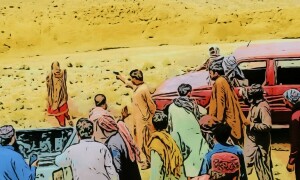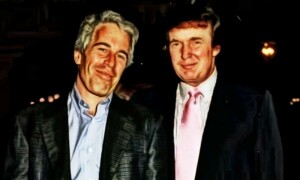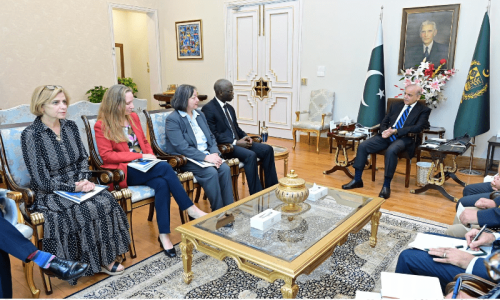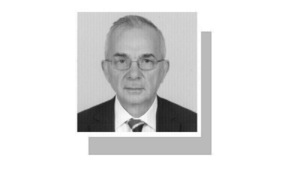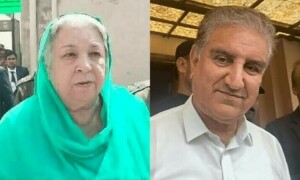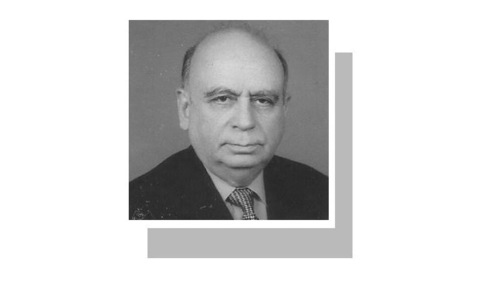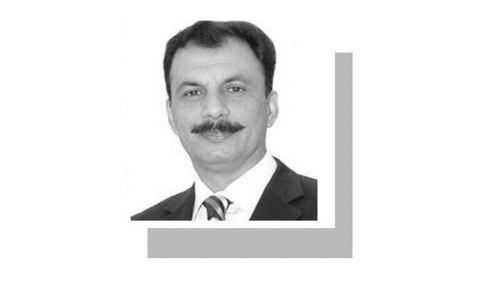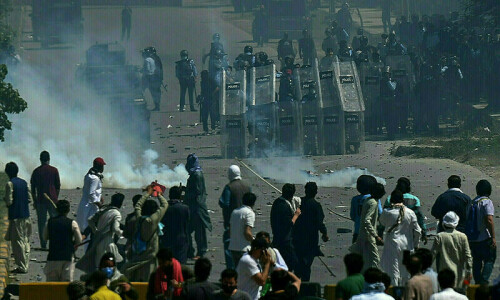AS we approach the 30th anniversary of his death, we are reminded of the tragic manner in which Zulfikar Ali Bhutto lost his life. But we are equally reminded of his tragic politics.
Bhutto was unquestionably one of the brightest politicians in the country, very well-read, hardworking and silver-tongued. Unfortunately, he also proved to be one of its least able rulers. Had he not been blinded by hubris, fate might have been kinder to him.
When he came to power in December 1971, he was at the peak of his popularity.
Just 13 years ago, he had burst on the national scene when, at the young age of 30, he was appointed to a cabinet post. He gained prominence as foreign minister by creating a diplomatic opening to
When he fell out of favour with Ayub Khan in 1966, many thought he was condemned to oblivion. Instead, he shot right back in 1967 by launching the PPP. Its manifesto, immortalised in Urdu verse, promised power to the people.
In the twilight of the Ayub raj, the people spilled out on the streets forcing Ayub to warn them that, unless they put an end to the agitation, 'The language of weapons will speak'. Bhutto would turn this phrase around, saying that Ayub should have used the weapon of language rather than the language of weapons. The tragedy is that when Bhutto himself was deposed from office in July 1977, there was little street protest.
Through his heavy-handed tactics, Bhutto had lost the support of the very people who had brought him to power. He was enamoured of Hegelian dialectics and the concept of contradiction, which formed the bedrock of Marxian and later Maoist dogma. But more than anything else in the socialist lexicon, he was drawn to the notion of the dictatorship of the proletariat. And, since the proletariat was confused and illiterate, he would be their voice, their Quaid-i-Awam.
He soon realised that he had created expectations that could not be fulfilled regardless of how many factories and banks and schools and colleges he nationalised. It was only a question of time before the workers and the students who had brought him to power took to the streets. Bhutto, by now robed in authority, warned them that the power of the street would be met by the power of the state. That he was resorting to those very weapons which he had inveigled against earlier was inconsequential.
He would see the contradictions in Nehru's politics and dismiss his own by quoting Emerson, 'consistency is the hobgoblin of small minds'. But Emerson had warned of 'foolish consistency', not just consistency.
He liked wearing the mantle of the
He took the personality cult which he found so objectionable in Ayub to new heights. By steamrolling all political opponents, including those in his own party, and by banishing dissent from the polity, he laid the foundations of a toxic 'winner take all' culture that continues to this day. His oratory, which had inspired many when he was out of office, lost its charm. It rang hollow, a string of meaningless words, as insipid as the marathon harangues of Fidel Castro.
His tenure was characterised by many failed opportunities. He had an opportunity to create balanced civil-military relations. Instead, by pursuing domestic policies that provoked extreme anger among his opponents, he gave the army an opportunity to intervene for a third time. He had the opportunity to solve the
He failed to respect the federal constitution that was passed unanimously in 1973 by not respecting the political leaders of the Frontier and Balochistan. And despite standing underneath Jinnah's portrait and paying lip service to the
Bhutto, the consummate leader, was above it all. There was no need for a division of powers.
Despite espousing the cause of the common man, he remained the 'scion of an aristocratic family', as memorialised in the dust jacket of one of his books. He called himself a poet and a revolutionary but the large collection on Hitler and Napoleon in his library at 70
Always distrustful of the army, he created a special security force to guard him but which he also used to rough up his opponents, real and imagined. So it was that the rivers of blood that he had prophesised would flow from
That was the title Bhutto gave to his short tract about the break-up of
The author is an associate with the Pakistan Security Research Unit at the



